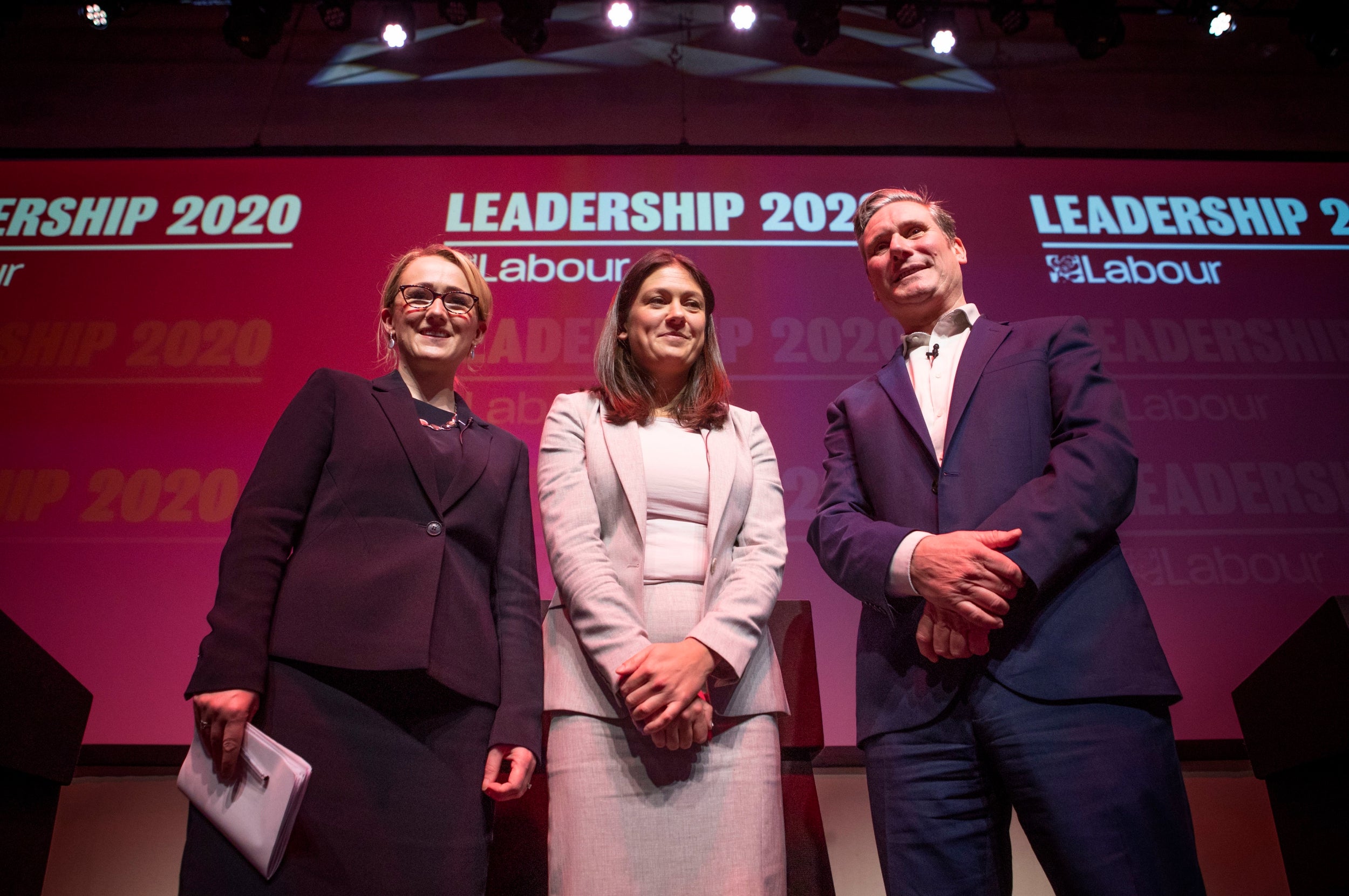We are a little wiser now about what the Labour leadership contenders stand for
Editorial: We asked all three candidates to write for The Independent, setting out why they should be leader of the opposition

We hope that you, the reader, will agree that this is a worthwhile exercise. As the voting opens in the Labour leadership election, we asked all three candidates to write for The Independent setting out why they should be leader of the opposition and therefore a candidate to be prime minister.
Keir Starmer’s contribution is big on unity. “United we will win,” he declares. Well, it certainly helps, but it might depend on what the policies are on which the party is united.
Here, Sir Keir operates mostly at the highest level of generality: “Peace, justice, equality and dignity for all.” Of these values, his article suggests equality is the most important, but he says nothing about how it is to be achieved except to talk about the “radical socialist tradition” and strengthening trade unions.
It remains the case that many of those voting for Sir Keir will do so on the assumption that he will ditch many of Jeremy Corbyn’s policies, while many others will do so hoping that he will keep them. That does not seem a secure mandate for the leadership, but it may be that party members value competence and an ability to hold a divided and uncertain party together above clarity.
Rebecca Long-Bailey has a more distinctive label, talking about “aspirational socialism”, but it sounds rather artificial until she defines it as “people wanting a better life for their children than they had”.
Her fondness for clunky language is almost charming. Five times in her article she uses the phrase “the Green Industrial Revolution”. Again, if you think about it you can see what she is trying to say, but it is not exactly a phrase to stitch to the people’s banners.
At least she addresses the weaknesses of the Corbyn manifesto, albeit indirectly, by presenting herself as “a details person”. She implies that the problem with the policies at last year’s election was that they were not detailed enough. We suspect that most Labour members recognise that the problems were more serious than that, and that Nye Bevan’s phrase about the language of priorities being the religion of socialism could be heeded at this point.
Lisa Nandy’s article is the only one that demands change of the party, and makes the provocative point that some traditional Labour supporters felt the party thought they were “racist” for expressing concerns about immigration. She defends free movement between the UK and the EU, but argues that the party lacked the courage to level with people. She says this means “making the case for freedom of movement, alongside an ambitious investment in UK skills”.
Hers is the most fluently argued of the candidates’ contributions, although much of it is rather vague about “what it will take for us to win again”.
Indeed, there is little of substance to differentiate the three of them – although we note that two of them use the same phrase about it not being enough just to “change the man at the top”.
All the candidates have been cautious not to disagree much with each other, or indeed with the policies on which they recently fought an election, which has made for a dull campaign. But we hope that, by now and as a result of these three pitches, we know a little more about what kind of possible prime minister each of them might be.
Join our commenting forum
Join thought-provoking conversations, follow other Independent readers and see their replies
Comments